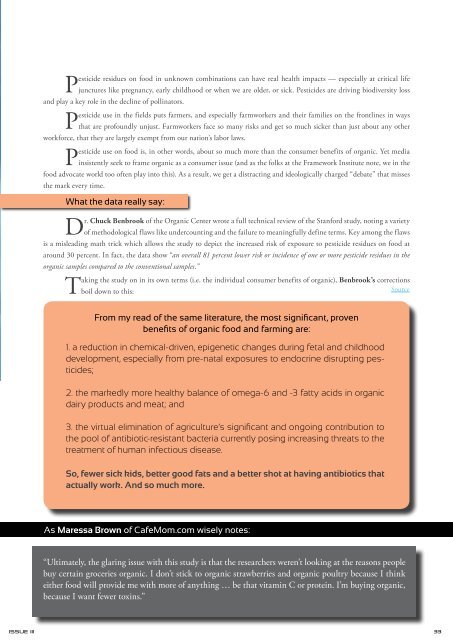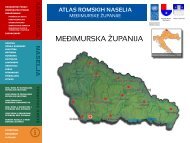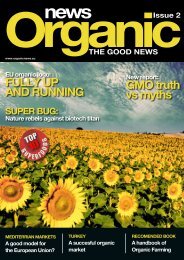Organic News 3
Organic News magazine issue 3
Organic News magazine issue 3
Create successful ePaper yourself
Turn your PDF publications into a flip-book with our unique Google optimized e-Paper software.
Pesticide residues on food in unknown combinations can have real health impacts — especially at critical life<br />
junctures like pregnancy, early childhood or when we are older, or sick. Pesticides are driving biodiversity loss<br />
and play a key role in the decline of pollinators.<br />
Pesticide use in the fields puts farmers, and especially farmworkers and their families on the frontlines in ways<br />
that are profoundly unjust. Farmworkers face so many risks and get so much sicker than just about any other<br />
workforce, that they are largely exempt from our nation’s labor laws.<br />
Pesticide use on food is, in other words, about so much more than the consumer benefits of organic. Yet media<br />
insistently seek to frame organic as a consumer issue (and as the folks at the Framework Institute note, we in the<br />
food advocate world too often play into this). As a result, we get a distracting and ideologically charged “debate” that misses<br />
the mark every time.<br />
What the data really say:<br />
Dr. Chuck Benbrook of the <strong>Organic</strong> Center wrote a full technical review of the Stanford study, noting a variety<br />
of methodological flaws like undercounting and the failure to meaningfully define terms. Key among the flaws<br />
is a misleading math trick which allows the study to depict the increased risk of exposure to pesticide residues on food at<br />
around 30 percent. In fact, the data show “an overall 81 percent lower risk or incidence of one or more pesticide residues in the<br />
organic samples compared to the conventional samples.”<br />
Taking the study on in its own terms (i.e. the individual consumer benefits of organic), Benbrook’s corrections<br />
boil down to this:<br />
Source<br />
From my read of the same literature, the most significant, proven<br />
benefits of organic food and farming are:<br />
1. a reduction in chemical-driven, epigenetic changes during fetal and childhood<br />
development, especially from pre-natal exposures to endocrine disrupting pesticides;<br />
2. the markedly more healthy balance of omega-6 and -3 fatty acids in organic<br />
dairy products and meat; and<br />
3. the virtual elimination of agriculture’s significant and ongoing contribution to<br />
the pool of antibiotic-resistant bacteria currently posing increasing threats to the<br />
treatment of human infectious disease.<br />
So, fewer sick kids, better good fats and a better shot at having antibiotics that<br />
actually work. And so much more.<br />
As Maressa Brown of CafeMom.com wisely notes:<br />
“Ultimately, the glaring issue with this study is that the researchers weren’t looking at the reasons people<br />
buy certain groceries organic. I don’t stick to organic strawberries and organic poultry because I think<br />
either food will provide me with more of anything … be that vitamin C or protein. I’m buying organic,<br />
because I want fewer toxins.”<br />
ISSUE III 33






